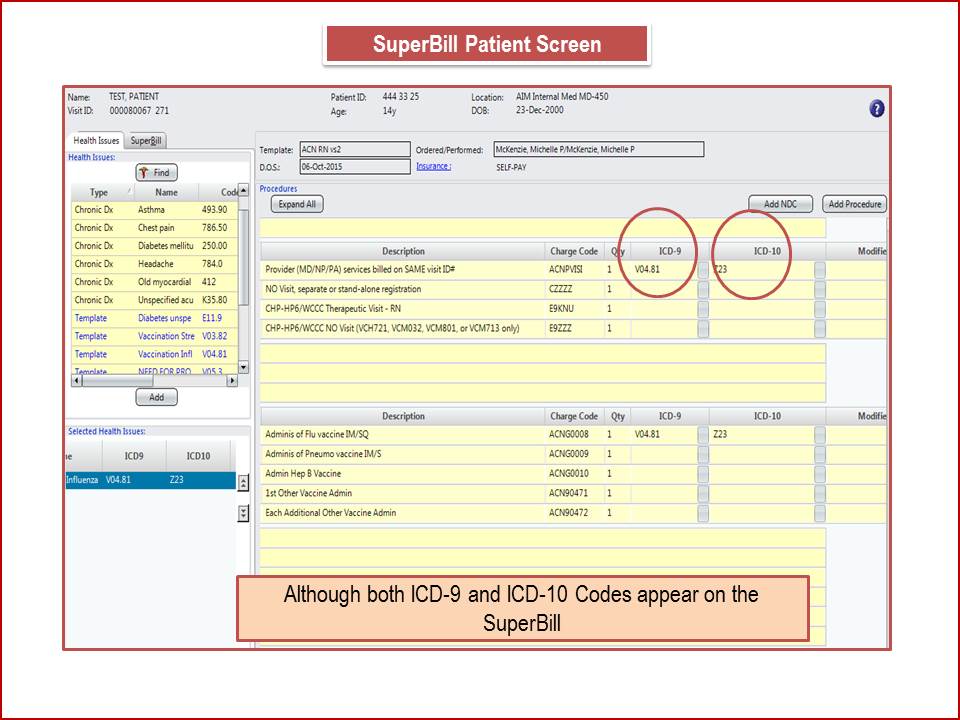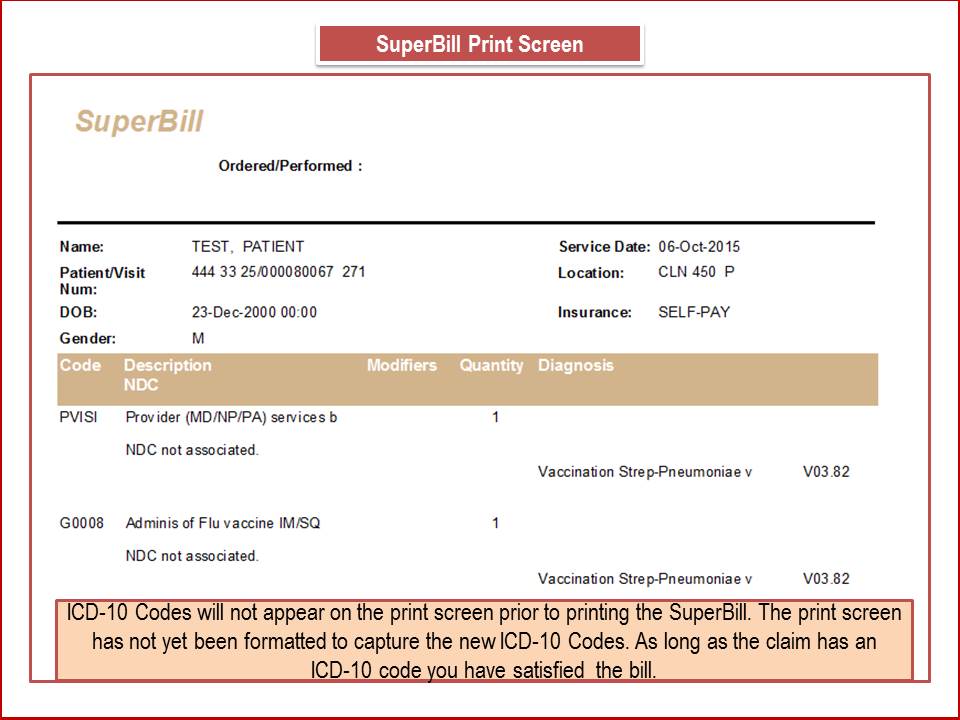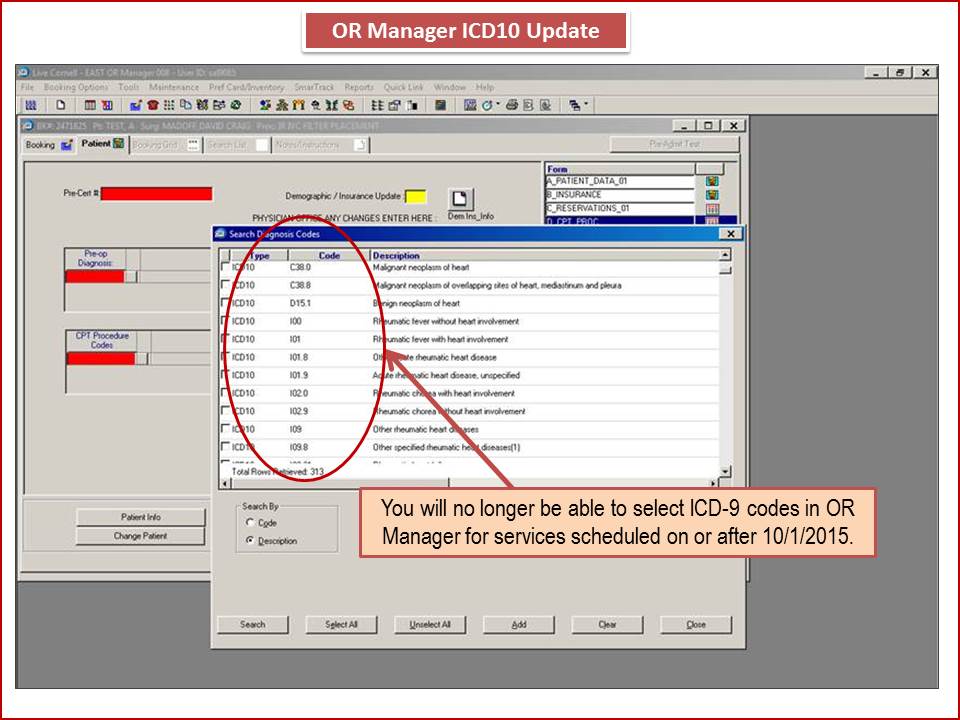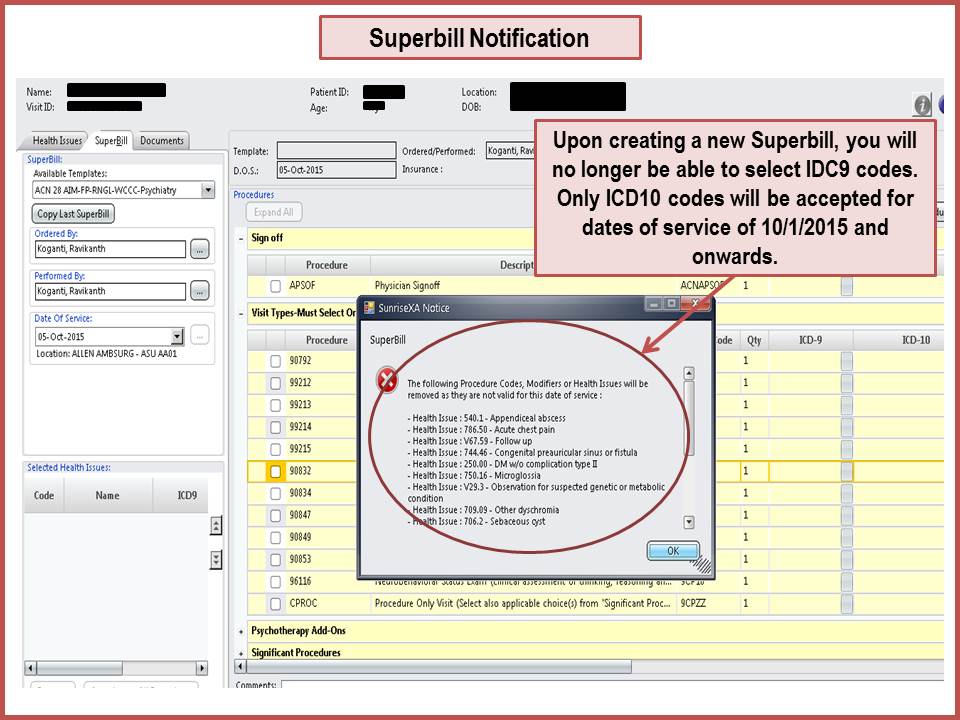SUMMARY OF EVENTS
Day 7 of ICD-10 yielded our first submission of inpatient billing to third party insurance carriers, a major if not most significant milestone in the implementation and an unequivocal success for the project, Support Center staff and the Organization. These cases are now being meticulously monitored for payer acceptance and eventual payment by our Patient Financial Services Staff. Our coding professionals in HIM continue to settle into an “ICD-10 production mode”, coding more than 200 additional October discharges, and continued “ICD-10 rounds” across the campuses is providing needed visibility and attention to the transition for unreached providers and staff. Outpatient encounter monitoring is mitigating risk against unintended spikes in the unbilled receivable as we prepare for our first outpatient billing and submission on October 12. An ongoing summary of the project is listed below and the full presentation can be found here.
OVERALL IMPACT
The impact of the ICD-10 transition on patient care/patient experience activities continues to remain minimal. Financial and operating metrics remain largely stable indicating that the transition to ICD-9 has not necessarily impacted our or the insurance industry’s ability to continue processing in ICD-9. Documentation Improvement specialists in HIM have expectedly increased the volume of provider inquiries in an effort to take advantage of the specificity available in ICD-10.
ITEMS BEING RESOLVED
Collaboration across the ICD-10 Support Center, Information Technology Services, and Patient Financial Services helped identify and correct a minor inpatient billing issue that prevented a subset of our eligible inpatient discharges from being successfully billed and submitted. Similarly, The Support Center and the OR Manager team continue to engage the vendor on improving the data integrity of its ICD-10 code dictionary to prevent invalid codes from being selected for surgical bookings. Implementation Alerts and reminders regarding transition specific idiosyncrasies in Allscripts SCM have aided in getting providers to clean up legacy health issues that are no longer valid in ICD-10. An updated implementation issues log can be found here.
SUPPORT CENTER ACTIVITY
Staff received 2 phone call and no additional e-mail inquiries while correcting approximately 400 additional outpatient encounters erroneously assigned ICD-9 codes. In total, the Support Center has logged 7 issues and 17 remain open. The monitoring and auditing effort has resulted in verifying more than 99% data integrity for inpatient, Ambulatory Surgery, and ED encounters. The ICD-10 AnTENna website recorded an additional 164 hits.
REMEMBER
- ICD-10 Diagnosis Codes are 3 – 7 characters, alpha-numeric, and ALWAYS begin with a letter
- ICD-10 is date of service/date of discharge sensitive
- DO NOT insert decimal points when entering ICD-10 diagnosis codes in Eagle
- Use ICDx to assist with documentation efforts in Sunrise Clinical Manager (SCM) Code conversions with multiple options presented in the NYP Code converter should prioritize the choices with bidirectional arrows
- Close open outpatient encounters as quickly as possible to ensure timely billing.
HELP
For continued assistance and inquiry, please call the ICD-10 Support Center at 646-NYP-9-2-10 (646-697-9210), e-mail ICD-10Help@nyp.org, or visit the ICD-10 AnTENna webiste.



